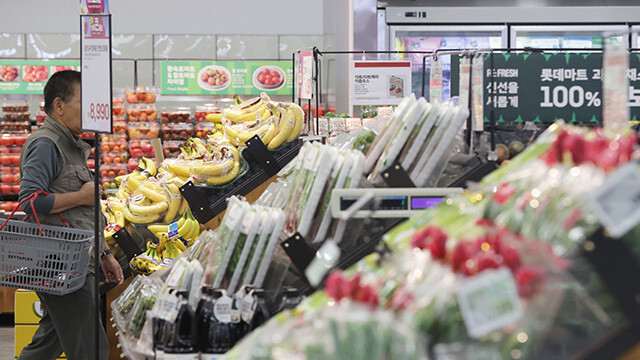
Seoul, South Korea – South Korea's consumer price index (CPI) rose 2.3% in 2024, marking the lowest annual increase since 2020, according to data released by the Statistics Korea on Monday. While the overall inflation rate has eased, the prices of fruits and vegetables have surged, putting a strain on consumers' wallets.
The monthly inflation rate remained in the 1% range for four consecutive months, hitting 1.9% in December. However, experts forecast a slight uptick to around 2% in early 2025 due to the upcoming Lunar New Year holiday and rising oil prices.
The primary driver of inflation this year was the sharp increase in prices of fruits and vegetables. Fresh fruit prices jumped 17.1% year-on-year, while fresh vegetable prices rose 8.2%. Adverse weather conditions led to fluctuations in prices of various produce throughout the year, with apples seeing a 30.2% increase and pears a whopping 71.9% rise.
The index for fresh food items, which includes fresh vegetables, fruits, and seafood, surged 9.8% in 2024, the highest level since 2010.
In contrast, petroleum prices declined by 1.1%, narrowing the decrease from the previous year's 11.1%. The Statistics Korea attributed this to a smaller decline in international oil prices compared to last year and the government's decision to reduce fuel tax cuts.
While the prices of fruits, vegetables, and petroleum products contributed to the overall inflation, the prices of other items such as personal services, electricity, gas, and processed foods saw a slower pace of increase compared to the previous year.
Looking ahead to 2025, the government expects inflation to moderate further due to a slowdown in international oil prices and stabilization in core inflation. However, inflationary pressures are expected to be relatively higher in January due to the Lunar New Year holiday and potential increases in oil prices stemming from exchange rate fluctuations.
To alleviate the burden on consumers, the government plans to extend the fuel tax cut until the end of February and continue implementing policies to stabilize food prices.
[Copyright (c) Global Economic Times. All Rights Reserved.]




























